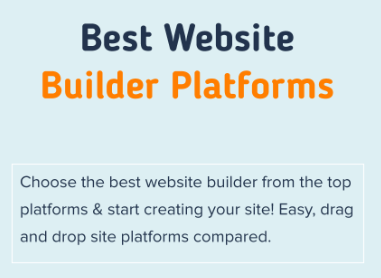What is a website?
A website-also called an Internet site or web site-is the set of pages uploaded to a server, connected to each other through links and reachable through a specific url called a domain.
Web sites differ from each other in the different structure and technology used and are divided into two main types:
STATIC WEBSITES: Static websites are, precisely, made up of static pages and have read-only content.
They are generally rarely updated and are maintained by several people who act on the HTML code of the page with the help of special web editors.
Each page must be opened through an editor, edited, saved manually, and reloaded on the server each time a change is made.
Static pages are no longer used today.
DYNAMIC WEBSITES: Dynamic websites consist of dynamic web pages and represent the majority of sites found online, as they are easier to manage than static websites that need to be updated by working on the HTML code.
Dynamic pages generate their content by extracting data from a database. This is very useful for sites that contain hundreds or thousands of pages.
Dynamic websites are characterized by a great deal of interaction between the user and the website: this interaction can take place in different ways such as, for example, through e-commerce and the purchase of a service/product, by filling out the contact form or signing up for a newsletter.

Websites also differ from each other according to the type of service offered or different purposes:
personal site maintained by individuals or small groups of people (such as a family), which contains mainly autobiographical information or focused on one’s personal interests (blog)
corporate site, functional for presentation and promotion of one’s company or service, provides opportunities for contact.
e-commerce site real online store specializing in the sale of digital or physical products
community/forum site site where users communicate and discuss with each other, subject to registration download site, a site that collects thousands of links through which you can download software (video game demos, pc programs, images, etc.)
informational site with content designed to inform the user, but not necessarily for commercial purposes online gaming or betting site, a site that is itself a game or is a space that allows multiple users to play or bet
site search engine catalogs the content of other sites and reposts it when searching
There are truly endless varieties of websites, and many are nothing more than a hybrid of two or more of the above types.
A clear example of this is a corporate site, on which one can both promote one’s products/services and publish informational material.
What does a website consist of?
Regarding the structure and organization of content, generally a Web site consists of a Home Page and sub pages, all of which can be reached from the menu on the Home Page itself via links within the site.
HOME PAGE – The home page is nothing more than the main page where the site and its contents are presented.
WEB PAGES – Any website can have an infinite number of pages.
For example, a corporate site may include, in addition to the home page, pages devoted to the description of services/products, a page devoted to the history of the company, a page containing contact details and information on how to reach it, an informative blog, and a part devoted to reviews.
In addition, a web page can contain information, materials (photos, videos, brochures and documents) that can be consulted or downloaded, and much more.
LINKS. Links are links between one resource and another on a website. Through links you may be directed to other pages, internal and external, of the site, and to downloadable resources.
MENU. The navigation menu is essential for directing users to web pages on the site. The menu remains fixed on each page of the site and allows the visitor to select the page of their interest. On the menu, pages on a site can be sorted into categories and subcategories to streamline the main menu and make it easier to navigate by specific topics.
URL. Each web page has an identifying “name” that serves to differentiate it from others within the site. Page identification is done through the path. The “About Us” page of our site, for example, has as its path: “who-we-are,” posited to the full domain of our website. The name of the website and the path to the web page, put together, make up the address of the web page, i.e., the URL > https://www.comunicarekairos.it/chi-siamo.html
Differences between URL and Domain The domain, also known as the web address, is the main entrance to the address where the website is located… kind of like the tongue-out front door.
Each domain is unique and not usable by others; for example, the domain of our page is https://www.comunicarekairos.it/ and there cannot be an equal web address as it is already occupied. The domain is the name of the website.
The URL, on the other hand, is the ferryman that leads to each of the pages within the website. Each URL encapsulates a domain name with the purpose of identifying a specific page or a specific piece of content.
To recap, the domain is the name of the website, the URL is what is used to locate a website, and the website is what the user arrives on and interacts with once they have landed on it.
What does the Web mean?
We have talked so far about web, website, web world, but what does the word web mean?
Textually it means “world web,” but that still does not explain what it is. Let us start by pointing out that the WORLD WIDE WEB (WWW) is NOT the Internet, but it has played a very important role in its worldwide propagation.
The Internet is nothing more than an interconnection of networks and was born before the web; the web, on the other hand, is an Internet space suitable for publishing multimedia content such as text, images, audio, video, etc. The Internet, therefore, represents a computer network, while the web an internal service of the Internet.
Nowadays, owning an interesting and professional website is essential.
A website, in fact, is an excellent communication tool that can be used by companies or any user to talk about himself and his work, present a product or service on which his business is centered.
If you would like more information, click on the button below and we will help you create the perfect website for your needs.







